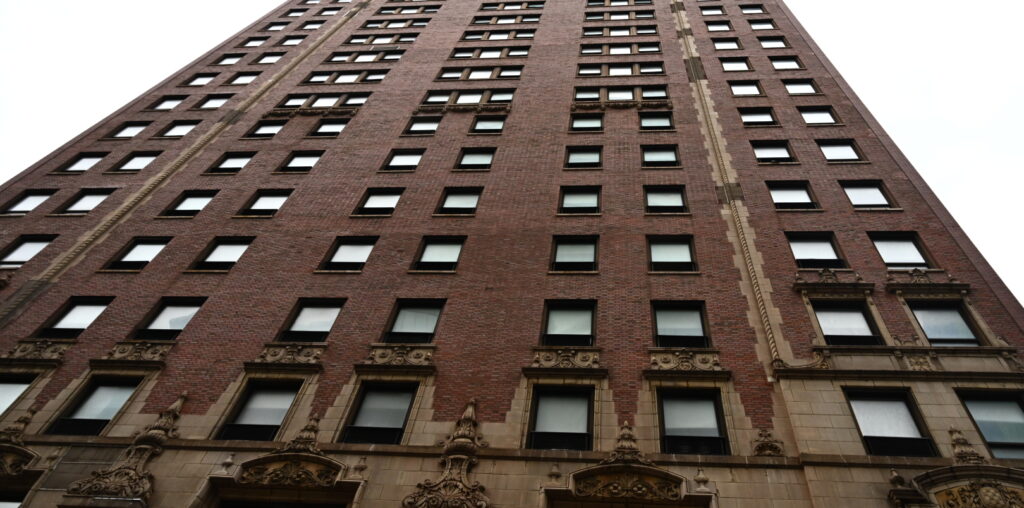DOWNTOWN — The largest city-run migrant shelter is slated to close next week as Chicago continues to scale down its new arrivals mission by the end of the year.
Inn of Chicago — steps away from the Magnificent Mile at 162 E. Ohio St. — has housed more than 1,500 migrants since opening as a shelter more than two years ago, when some of the first buses of asylum seekers began arriving in Chicago.
The shelter will close Nov. 15, ending two-plus years of contention between the shelter and the area’s aldermen, city officials confirmed to Block Club on Monday.
“All current shelter residents at the Inn of Chicago have been offered shelter placement at another New Arrivals shelter and will continue to receive the same services. The City is coordinating with Chicago Public Schools, Chicago Department of Public Health, state and county partners and wrap-around service partners to minimize disruptions to impacted families and ensure continuity of care,” Julie Gilling, director of policy and advocacy for the Chicago Department of Family and Support Services, said in an email.

Last October, Ald. Brendan Reilly (42nd), whose ward houses the shelter, and Ald. Brian Hopkins (2nd), whose ward borders the location, advocated for the city to shut down the shelter when its staffing contract expired Dec. 31, 2023.
Both aldermen cited concerns about the building’s integrity and public safety as top reasons to close the shelter. They said they received reports of drug sales, prostitution, people drinking alcohol in public, theft from local businesses, unlicensed street vendors, aggressive panhandling, the presence of illegal guns and the accumulation of trash and human excrement in the alleys at and around the Inn at Chicago.
At the time, Hopkins also cited the hotel’s deterioration, saying it was already in poor condition before it became a shelter.
“This load of humanity is putting a lot of stress and strain on the physical structure of the building itself. It’s in even worse condition now than it was, and we don’t believe that the owner of the building is acting in a responsible manner,” Hopkins previously said.
The city subsequently renewed its contract with Favorite Healthcare Staffing, which staffs the Inn of Chicago and the city’s other migrant shelters, the Tribune reported. The contract extension expired last month.
Reilly and Hopkins did not immediately respond to requests for comment on the closures.

The closure is aligned with the city’s announcement last month that it will shut down the migrant shelter system by the end of the year and combine it with the city’s homeless shelter network.
The merging of the two systems will add 3,800 beds to the 3,000 already in homeless shelters managed by the Department of Family and Support Services.
Under the new consolidated shelter system, migrants won’t automatically be guaranteed a shelter bed. The city will limit access to the new arrival shelter system to those who have been in the United States for 30 days or less.
The 30-day shelter stay extension will also be eliminated. Exceptions will remain through Jan. 1 for those with medical disabilities, or those who are pregnant or have other special circumstances.
Last week, immigrant advocates began sounding the alarm on the shelter plan, saying the shift will result in at least 4,000 people sleeping on Chicago’s streets.
Additionally, as the city heads into a contentious budget season, advocates called on Mayor Brandon Johnson to reinstate the big business head tax and pursue other “untapped” revenue sources to address the city’s homelessness and migrant crises.
Johnson’s budget proposal — which includes a property tax hike — currently earmarks $40 million for the One System Initiative, plus an additional $29 million to assist unhoused families move into “stable housing,” according to budget documents.
Listen to the Block Club Chicago podcast:

